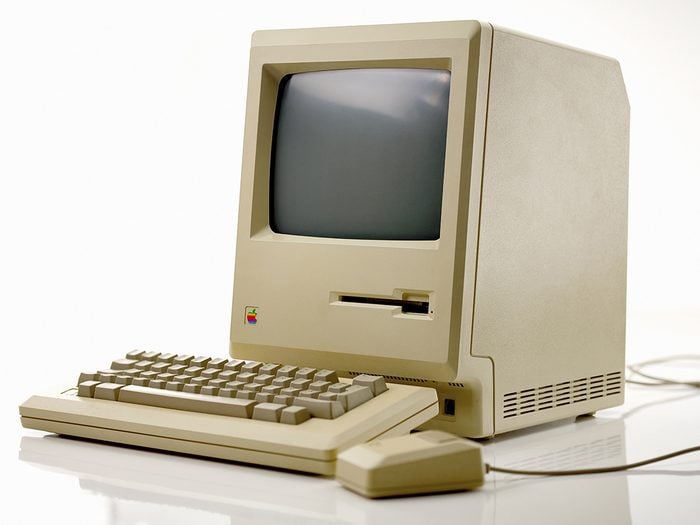I Took a Computer Course in the ’80s—Here’s What It Was Like

I'd have to deal with a major glitch before I could toss out my typewriter for good.
It was 1984, and rumours were flying around the water cooler that our typewriters were soon going to be replaced with computers. I had been happily banging away on typewriters for many years. First on manual ones then later on the newest electric model. But computers? I knew absolutely nothing about computers. Perhaps it was time to learn. The college calendar had arrived in my mailbox a few days earlier and after a quick perusal I found just what I was looking for. BASIC Computer course—the words jumped off the page at me. I scanned the pertinent details: date, time, cost, a total of 12 evening sessions. It sounded perfect. A quick phone call secured my enrollment.
Another language
The first night I found the classroom indicated on my confirmation slip. I expected to see a room full of computers, but there were only long tables and chairs. The instructor began the session with the usual introductions and overview of the course. I kept glancing around, wondering where the computers were and, with my mind thus preoccupied, I scarcely listened to anything the instructor was saying. After all, it was merely the introductory session. The second session was held in the same classroom. Still no computers. Again, my thoughts drifted and I listened half-heartedly as unfamiliar words rolled off the instructor’s tongue: “Binary code, let-statements, greater than, less than, equal to.” What the heck was this? I had not paid good money to listen to this gibberish. I had signed up to learn some basic computer skills and I was not interested in something that sounded like algebra.
By the third session I noticed that the students to the right and left of me had written pages of notes from the first two sessions. I surreptitiously sneaked a look at their notebooks. They had obviously listened closely as the instructor explained the meaning of all the statements and how each one interacted with the other. They had written down pertinent information. My notebook had only random doodles. As I furtively read my classmate’s notes, the light bulb went on. I slipped the college calendar from the back of my notebook and quietly turned to the computer section. I now did what I should have done in the first place and read through the entire description of the course.
The penny drops
I realized I hadn’t signed up to learn basic computer skills. I had signed up for a BASIC Computer Programming course. I was mortified by my colossal blunder but since my money was non-refundable I stuck it out for the full 12 weeks. I even learned how to write a simple program. Ultimately, though, I was not interested in programming; so the next semester I signed up for a beginner’s session to learn basic computer skills. When computers finally arrived at my workplace I easily made the transition and my typewriter was relegated to gather dust with other outdated office equipment. I later learned that there are many computer programming languages such as PASCAL, JAVA, PERL, COBOL and many others. BASIC is just one more type of computer language.
Need to know basis
Currently, I find that I am once again not keeping up with the present-day trend. I don’t have a smart phone, and I seldom go on any of the social media sites. Nevertheless, I like to think that I am somewhat computer savvy. I know how to log onto the Internet and use the various search engines to find information that I want. I can send emails, including attachments, and I use the public library’s site to reserve books I want to read. But I do not like to be constantly inundated with information, and I refuse to allow the fast-paced world of electronic mania to dominate my universe. I liken it to a big pot of soup, bubbling merrily away on the stove. When it’s done give me a bowl of soup, not the whole pot. Just give me the basics.
Next, check out these hilarious tech tweets everyone can relate to.






